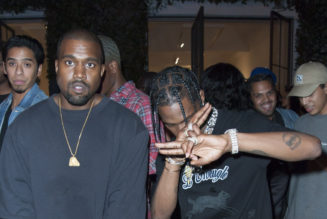The Annenberg Inclusion Initiative’s latest report finds that women’s involvement in the biggest hits of 2023 was greatly improved over previous years.
Each year since 2018, the University of Southern California’s Annenberg Inclusion Initiative has tracked the number of women credited on the music industry’s biggest hits, and the numbers have usually been dismal — year after year, female artists, songwriters and producers have been crowded out by men, sometimes by extraordinary margins.
In their latest report, however, the study’s researchers found some good news. Women’s involvement in the biggest hits of 2023 was greatly improved from previous years, and in some measurements reached higher proportions than the researchers have found in more than a decade of data.
For example, of last year’s most popular tracks — as defined by Billboard’s year-end Hot 100 singles chart — 35 percent of the credited performing artists were women. That is a higher number than U.S.C.’s researchers have found for any year going back to 2012, and only the second time (after 2022) that the number has been over 30 percent.
And for the first time in the study’s research window, a majority of the year’s 100 most popular songs — 56 percent of them — had at least one female songwriter.
Stacy L. Smith, an associate professor at the Annenberg School for Communication and Journalism and the study’s lead author, was cautiously celebratory of the findings. While the latest numbers are up, she noted, women still represented an average of only about 23 percent of performer credits on all surveyed songs since 2012. (Some years that figure has been as low as 17 percent.)
“For the second year in a row, the percentage of women artists on the popular charts has increased,” Dr. Smith said in a statement. “This is a notable milestone and worthy of celebration. However, it is still important to recognize that there is room to grow. Women filled less than one-quarter of artist roles across all 12 years examined, and these figures are still far from representing the 50 percent of women in the population and the music audience.”








